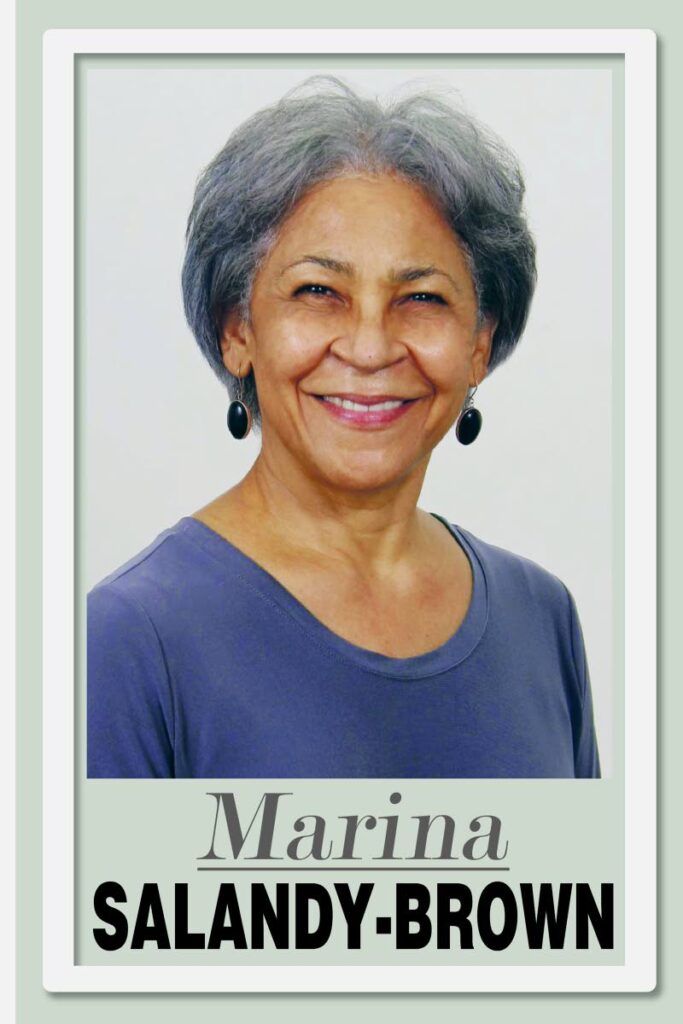Many questions, few answers

It has been a very strange start to 2025. Just six weeks in and we have been presented with a host of developments that confound our fragile understanding of how things are supposed to work – and that is leaving aside President Trump and his increasingly wild antics.
Here in tiny TT there is much to tumble us out of any semblance of a comfort zone.
The January 30 sudden arrest, during a state of emergency, of the incumbent Commissioner of Police (CoP), Erla Harewood-Christopher – the first female to hold the position – for what might be “misconduct while in public office” was the coup de grace.
If it were a theatrical satire you could just about imagine the stately commissioner being detained by bumbling subordinates and embarrassed over the limited results of the present emergency period and then facing the dramatic prospect of returning to work as their boss.
The comic element of this unbelievable – from any standpoint – farce is multiplied by all the confusion that ensued. The scriptwriters would have a field day with the power play at work within the TTPS and the legal and political wrangling.
Alas, it is not the theatre, even though it is a tragicomedy, and there is real fallout from the profoundly ill-advised police move. The CoP was released after two nights, apparently guiltless, while further investigations continue into exactly what misdemeanour – it’s hard to know.
Commenting on the event is difficult without all the facts at the time of writing, but many questions arise: Why was the Prime Minister not informed of the ill-timed arrest of the guardian of our safety whom he appointed? After all, the very act of arresting a CoP is one of national importance, let alone during a state of emergency. Who gave the go-ahead for such action when the CoP’s legal representative felt able to demolish the case against her client in a flash? What really motivated the turn of events on the part of the CoP’s subordinates, and did they act alone? Who conceived of it?
It seems reckless to the citizen observer. At this time when the police possess extra powers, our confidence in the TTPS is paramount. It is also critical for the proper functioning of the TTPS that they have respect for and confidence in their leader.
It seems unlikely that the present CoP would be reinstated, notwithstanding her legal battle to do so. She is thoroughly damaged goods. So we face the convoluted ordeal of appointing a seventh CoP in 12 years. This points a finger at the Police Service Commission, the Ministry of National Security and Parliament, which are ultimately responsible for creating the environment in which a first-class police service can be appointed and function productively.
The law of diminishing returns explains that after a certain point, investing more in a process will not produce the desired effect, if other factors remain the same; each additional input results in a smaller increase in output.
That is where we are in TT. We keep going around in circles and digging ourselves into a deepening hole. Crime is not diminishing because all the contributing factors remain unchanged. The social conditions that lead young people to criminal activity are chronic, the big gun-racketeers, entrenched gang leaders and people-traders are still free because of police ineptitude and the all-pervasive corruption in our society.
Most of everything about how the country and its institutions are being managed at all levels of governance is beyond the comprehension of the average citizen, who is profoundly aware of the relentless slide into chaos. Thank goodness it is Carnival time, that the pan is sweet, our creative juices are flowing and our skill for rolling with the punches returns to the fore as we wine and dance through the next month, parking our troubles so far behind our backs that they lose importance.
Maybe, once the oblivion of Carnival is over, the mayhem will redirect people towards prayer and other ways of trying to escape the nonsense, but the confusion and gross incompetence will also, undoubtedly, enable further crime. Maybe we have to just dream of a different outcome to what seems our destiny.
Many indigenous societies have protective objects like the black beads we put on babies’ wrists to ward off maljo and evil spirits. In the US, Native Americans make small sacred webs from threads, beads and feathers that are called dreamcatchers and are placed over a bed to catch the morning light. They believe the night air is full of good and bad dreams and that the good ones pass through the hole at the centre of the web while we sleep and the bad ones remain trapped in the web, where at dawn they are destroyed by the light of day.
Maybe we each need a dreamcatcher and can awake to a different reality.

Comments
"Many questions, few answers"